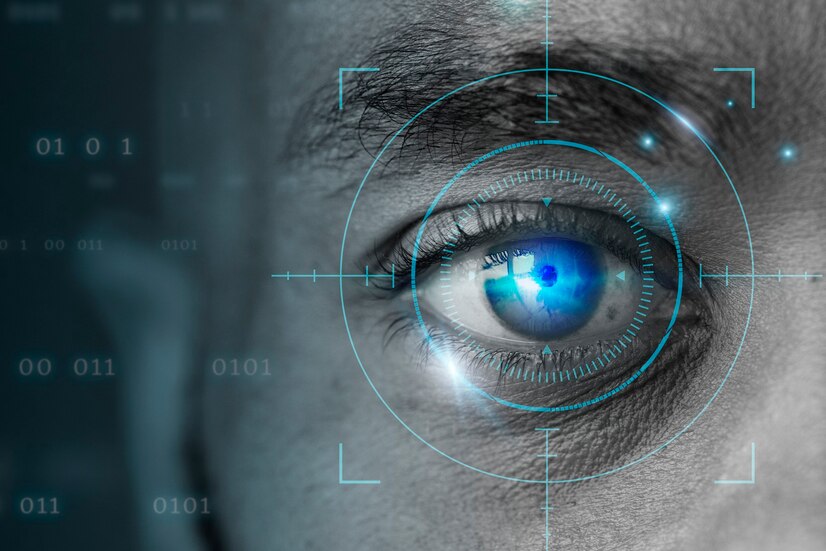In exploring how surveillance technology impacts privacy concerns in modern society, at Ace Tech Middle East, we delve into the complexities of technological advancements and their implications on individual privacy rights and societal norms.
Understanding Surveillance Technology:
Definition of Surveillance Technology: Surveillance technology refers to the use of electronic devices or systems to monitor, record, and analyze activities or behaviors of individuals or groups.
Types of Surveillance Technology:
- Closed-circuit television (CCTV) cameras for video monitoring.
- Unmanned aerial vehicles (drones) equipped with cameras for aerial surveillance.
- GPS-enabled tracking devices to monitor location movements.
- Audio recording devices for capturing sound and conversations.
Examples of Surveillance Tools: Common examples include CCTV cameras installed in public spaces, drones used for aerial surveillance in various industries, and tracking devices employed for fleet management or personal monitoring purposes. These tools provide real-time or recorded data for surveillance and analysis purposes, contributing to security, safety, and efficiency in different contexts.
Benefits of Surveillance Technology:
Enhancing Public Safety and Crime Prevention:
- The use of surveillance cameras in public spaces deters criminal activities and helps law enforcement respond swiftly to incidents.
- The integration of facial recognition technology aids in identifying suspects and enhancing security protocols.
Monitoring of Critical Infrastructure and Sensitive Areas:
- Surveillance systems monitor power plants, airports, and other critical sites to detect and respond to potential threats or emergencies.
- Constant monitoring of borders and high-security zones enhances national security measures.
Improving Traffic Management and Public Services:
- Traffic cameras and sensors enable real-time monitoring of traffic flow, reducing congestion and enhancing road safety.
- Surveillance in public transport systems improves passenger safety and operational efficiency, ensuring better public service delivery.
Privacy Concerns in the Digital Age:
Data Collection Practices and Privacy Implications:
- The collection of personal data through online activities, social media, and IoT devices raises privacy concerns.
- Lack of transparency in how collected data is used and shared by companies and service providers.
Challenges from Interconnected Devices and Smart Technology:
- Smart homes and cities’ interconnected devices increase data-gathering risks without users’ explicit consent.
- Vulnerabilities in IoT devices and networks create opportunities for data interception and misuse.
Risks of Data Breaches and Unauthorized Access:
- Cybersecurity threats such as hacking and malware pose risks of data breaches, leading to unauthorized access to sensitive information.
- Insufficient data protection measures heighten the risk of privacy breaches and data misuse.
Impact on Individual Privacy:
Invasion of Personal Space and Constant Monitoring:
- Surveillance technologies can intrude on individuals’ private spaces, leading to feelings of being constantly watched or monitored.
- Continuous monitoring through CCTV cameras, tracking devices, and digital surveillance systems raises concerns about personal privacy boundaries.
Use of Facial Recognition and Biometric Data Without Consent:
- Deployment of facial recognition technology in public and private spaces without explicit consent raises ethical and privacy issues.
- Biometric data collection, including fingerprints and iris scans, without individuals’ informed consent, raises concerns about data protection and privacy rights.
Potential for Misuse of Collected Data by Government or Private Entities:
- Data collected through surveillance measures can be misused for profiling, discrimination, or targeted marketing without individuals’ knowledge or consent.
- Lack of stringent regulations and oversight can lead to the exploitation of personal data by government agencies or private organizations for unauthorized purposes.
Legal and Ethical Considerations:
Overview of Privacy Laws and Regulations:
- Explanation of local and international laws governing data privacy, surveillance, and data protection.
- Discussion on key legal frameworks such as GDPR, CCPA, and local privacy acts that set guidelines for data collection and use.
Ethics of Mass Surveillance and Balancing Security:
- Examination of ethical dilemmas surrounding mass surveillance, including issues of individual privacy rights versus collective security needs.
- Exploration of strategies for achieving a balance between surveillance for security purposes and respecting privacy rights.
Calls for Transparency, Accountability, and Oversight:
- Advocacy for transparent surveillance practices, including clear policies on data collection, storage, and usage.
- The importance of accountability mechanisms, such as audits and oversight bodies, to ensure responsible surveillance practices and prevent misuse of collected data.
Corporate Surveillance and Consumer Privacy:
Tracking of Online Activities and Digital Footprints by Companies:
- Explanation of how companies track user behavior online through cookies, tracking pixels, and user accounts.
- Discussion on the collection of data such as browsing history, search queries, and interactions with online content.
Targeted Advertising and Data Monetization Practices:
- Overview of how companies use collected data to create targeted advertising campaigns based on user preferences and behavior.
- Explanation of data monetization strategies, including selling user data to third parties for advertising or analytics purposes.
Consumer Rights Regarding Data Protection and Privacy Policies:
- Explanation of consumers’ rights regarding data privacy, including the right to access, correct, and delete personal data.
- Discussion on the importance of transparent privacy policies, consent mechanisms, and opt-out options for consumers to control their data.
Social Implications of Widespread Surveillance:
Impact on Freedom of Expression and Individual Autonomy:
- Discussion on how pervasive surveillance can create a chilling effect on free speech and expression online and offline.
- Examination of how individuals may self-censor out of fear of surveillance, impacting their autonomy and creativity.
Creation of Surveillance Cultures and Self-Censorship:
- Explanation of how widespread surveillance fosters a culture of constant monitoring and scrutiny in society.
- Discussion on the effects of self-censorship, where individuals limit their behavior and expression to avoid scrutiny or repercussions.
Psychological Effects of Constant Surveillance on Mental Well-being:
- Exploration of the psychological impacts of living under constant surveillance, such as increased stress, anxiety, and paranoia.
- Discussion on how surveillance can erode trust and social cohesion, leading to feelings of alienation and insecurity in communities.
Technological Advances and Future Trends:
Developments in Artificial Intelligence and Predictive Analytics:
- Overview of advancements in AI algorithms and machine learning models for analyzing surveillance data.
- Discussion on predictive analytics’ role in identifying patterns, predicting behaviors, and enhancing surveillance capabilities.
Integration of Surveillance Technologies with IoT and Smart Cities:
- Explanation of how surveillance technologies like cameras, sensors, and data analytics are integrated into IoT devices and smart city infrastructure.
- Discussion on the benefits of real-time monitoring, data-driven decision-making, and efficient resource allocation in smart cities.
Implications of Emerging Technologies on Privacy and Surveillance Landscape:
- Examination of how new technologies like facial recognition, biometric scanning, and automated surveillance systems impact individual privacy rights.
- Discussion on the need for updated privacy regulations, ethical guidelines, and public discourse to address potential risks and challenges posed by emerging surveillance technologies.
Conclusion:
In summary, at Ace Tech Middle East, we recognize the complex interplay between surveillance technology and privacy concerns in modern society. We advocate for balanced approaches that prioritize both security and individual rights. Contact us to discuss comprehensive surveillance solutions tailored to your needs.

